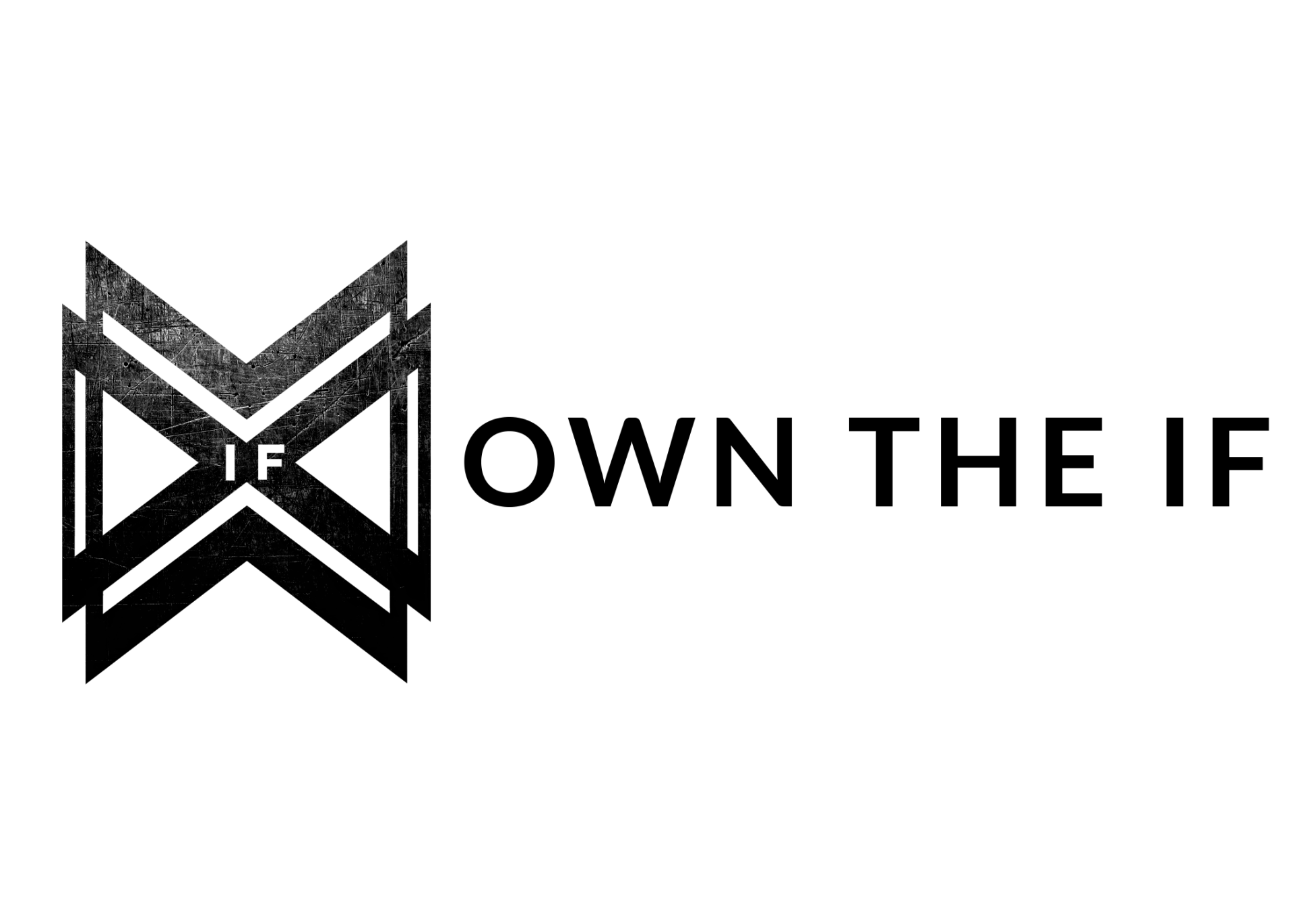Wow. 100 weeks of tactics, frameworks, mental models, paradoxes, showing up, pushing through, and building resilience. That’s a lot of words—and even more action.
In that spirit, I’m posing a challenge this week: The 100 Days Challenge.
The concept is simple: Pick one goal. Commit to it. Show up for 100 days. No shortcuts, no waiting for motivation—just consistent effort, one day at a time. It’s not about perfection; it’s about proving to yourself what happens when you stick with something.
The idea of committing to something for 100 days isn’t new. John C. Maxwell popularized it, emphasizing that real transformation happens through consistency. Athletes, creatives, and business leaders have used this approach to develop discipline. Now, it’s your turn.
It’s the beginning of March, which means summer is creeping up fast. Instead of waiting until June to wish you had started something earlier, what if you committed right now to 100 days of consistent effort?
If you start this weekend, you’ll hit 100 days by mid-June—right at the start of summer. Imagine looking back, knowing you showed up for yourself every single day and built real momentum instead of just thinking about it.
And no, this doesn’t mean you need to overhaul your entire life overnight. No need to wake up at 4 a.m., run a marathon before work, and eat nothing but kale (unless you want to, in which case… good for you, I guess). This is about small, consistent actions that add up over time.
So, I’m throwing down the gauntlet. 100 days. One goal. No excuses. Plus, I’ll be right there with you, committing to this challenge alongside you.
How It Works
Step 1: Pick a SMART Goal
To make this challenge effective, your goal needs to be SMART—Specific, Measurable, Achievable, Relevant, and Time-bound.
- Specific: Clearly define what you’ll do. (Not “get in shape,” but “walk 10,000 steps a day.”)
- Measurable: Track progress in a way that keeps you accountable. (“Write 200 words daily” instead of just “write more.”)
- Achievable: It should challenge you, but still be realistic. (Not “run a marathon in 100 days” if you’ve never run before, but maybe “run 3 miles without stopping.”)
- Relevant: Make sure it aligns with something that actually matters to you. (If mental clarity is a goal, maybe meditation is a better challenge than weightlifting.)
- Time-bound: This challenge already has a built-in timeframe—100 days. So, what’s your daily commitment?
Example: Instead of saying, “I want to eat healthier,” a SMART goal would be, “I will eat 30g of protein with breakfast every day for 100 days.” It’s specific, trackable, and realistic.
Step 2: Choose Your Focus
Need ideas? Here are some:
- Health & Fitness: Walk 10,000 steps a day, complete a set number of push-ups or squats, follow a structured strength plan, or stretch for 10 minutes daily.
- Mental Toughness & Resilience: Take a cold plunge or cold shower daily, ruck a set distance each morning, train with a weighted vest, or deliberately do something hard and uncomfortable every day.
- Mindset & Focus: Journal for 5 minutes, meditate for 10 minutes, write down three wins or lessons daily, or read 10 pages of a personal growth book.
- Nutrition & Recovery: Drink a set amount of water, get 30g of protein with breakfast, cook at least one homemade meal daily, or commit to 7+ hours of sleep.
- Personal Growth & Skills: Learn a new skill for 15 minutes, practice a new language, write 200 words a day, or complete a small creative project each day.
Next Steps:
Track It: I’ve created a simple tracking sheet (100 Day Challenge.pdf) so you can check off each day. Because let’s be honest—there’s something oddly satisfying about checking boxes. Progress isn’t about feeling motivated. It’s about doing the thing. Every. Single. Day.
Push Through: There will be days when you don’t want to do it. Those are the days that matter the most. When you push through resistance, you build fortitude.
Check-In: Keep yourself accountable. Post about it (tag @owntheif), email me (erinn@owntheif.com), or track your progress with others using a hashtag.
Finish Strong: At the end of 100 days, look back at what you’ve built: consistency, discipline, and proof that you can show up for yourself no matter what.
Bringing It Home
100 days seems long—until you realize those 100 days will pass whether you do this or not. The difference is where you’ll be at the end of it. By June, you could be stronger, healthier, more disciplined, and proud of the effort you put in. Or, you could be in the same spot, wondering why you didn’t start.
The question isn’t “Can you do it?”
The question is “Will you?”
I know what goal I'm going to be doing. Who’s in?
You don’t have to do this alone. I’ll be in it with you—showing up every day, doing the work, and proving to myself what 100 days of commitment can do. You just have to show up every single day.
Hit reply and let me know what you’re committing to. I'd love to hear it. Let’s make these 100 days count!
We’ve got this.
So let’s go!!!!!
Think about the people you admire most—real or fictional. How do they carry themselves? What draws you to them?For me, it’s quiet confidence.
People like Keanu Reeves, whose humility speaks volumes; Matthew McConaughey, whose calm presence radiates ease; and Meryl Streep, whose talent speaks louder than words. Characters like Atticus Finch, Jo March, Geralt of Rivia, and Ellen Ripley come to mind too—each one exuding quiet confidence rooted in self-awareness and capability, no fanfare, just certainty in who they are.
Confidence doesn’t come easily to me, which is why I deeply admire it in others. For years, I second-guessed myself, a habit from my people-pleasing and perfectionist past. Imposter syndrome still creeps in sometimes. But over time, through practice and personal growth, I’ve learned to trust myself. I don’t have all the answers, but I have confidence in my ability to figure things out.
Maybe you already have that kind of quiet confidence, or perhaps you're working on it. Either way, it’s something that can always be refined.
Quiet confidence isn’t arrogance—it’s about knowing you can handle whatever comes your way because you’ve done the work. And the best part? It’s a skill anyone can build, starting with small, daily actions.
Here are a few practices that have helped me strengthen mine over time:
1. Say Less, Do More
Why It Works: Loud confidence seeks approval; quiet confidence doesn’t need it. Confident people move with purpose and let results replace words. When you focus on action instead of validation, you naturally stand out.
How to Practice:
- Cut back on announcing your plans—just execute.
- Avoid over-explaining. If you said it once, let it stand.
- Make consistent progress, even in small steps.
Confidence isn’t about making sure people know you’re working—it’s about doing the work. Over time, results speak louder than words.
2. Keep Promises to Yourself
Why It Works: Confidence comes from knowing you can rely on yourself. Every time you follow through—whether it’s a workout, a commitment, or a personal goal—you reinforce self-trust. If you constantly break promises to yourself, your confidence erodes.
How to Practice:
- Start small: set daily commitments you know you can keep.
- Hold yourself accountable as if you were keeping a promise to a close friend.
- Track wins, no matter how minor—they add up.
Self-trust is the foundation of quiet confidence. When you prove to yourself that you show up, it shows in everything you do.
3. Master the Basics
Why It Works: Confidence doesn’t come from hype—it comes from competence. The more prepared and skilled you are, the less you feel the need to prove yourself. People who know they’re capable don’t waste energy convincing others.
How to Practice:
- Master the basics—whether in work, sports, skills, or life, repetition builds real confidence.
- Focus on preparation. The best don’t rely on talent alone.
- Learn daily. Take a class, get a mentor, listen to a podcast, read, watch documentaries.
The truly confident don’t seek attention. They don’t need to. Their mastery speaks for itself.
4. Pause Before You Speak
Why It Works: The most powerful person in the room is rarely the one who talks the most. Pausing before speaking shows control, thoughtfulness, and self-assurance. I took a MasterClass with communication expert Vinh Giang, who emphasized this practice—and it truly changed the way I communicate.
How to Practice:
- Before you speak, ask yourself: Does this need to be said? Does it need to be said by me? Does it need to be said right now?
- Get comfortable with silence—don’t rush to fill it.
- Pause for 3 seconds after you finish a sentence or before answering a question.
- Speak with intention, not just reaction.
Thoughtful words carry more weight. When you don’t scramble to be heard, people listen when you do speak.
5. Use Confident Body Language
Why It Works: Your body tells your brain how to feel. When you carry yourself with strength, your mind follows. It’s a feedback loop—act confident, and soon, you are confident.
How to Practice:
- Stand tall with shoulders back—posture signals presence.
- Move with purpose—no fidgeting or shrinking into space.
- Hold eye contact and have a firm handshake—engage without hesitation.
Confidence isn’t just in your head; it’s in how you move. Own your space, and you’ll own the room.
Bringing It Home:
Quiet confidence is built—not given. It isn’t loud or flashy. It’s something you develop through action, practice, and self-trust.
If you’re still working on building yours, start small. These five principles, practiced daily, will create a foundation that lasts. You don’t have to have it all figured out at once—just take the next step. Every bit of progress reinforces that you can trust yourself.
If confidence already comes naturally to you, there’s still room to grow. The most self-assured people keep refining their presence, deepening their self-trust, and strengthening that quiet force within.
Confidence isn’t something you chase—it’s something you cultivate. Once it becomes part of who you are, you move through life with a presence that can’t be shaken. Walking into a room feels different when you know you belong. Speaking holds more weight when people lean in to listen.
The best part? It all starts with you.
You've got this.


